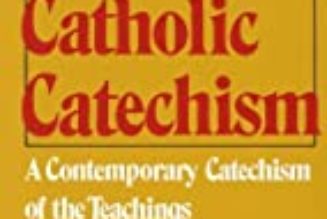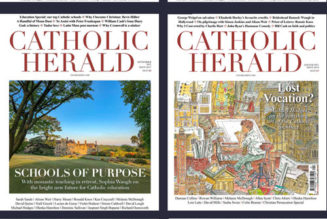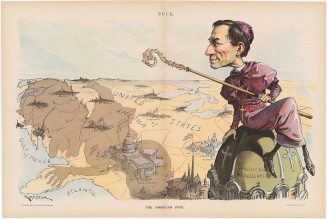Yesterday, Pope Francis livestreamed a special Urbi et Orbi blessing (a blessing traditionally reserved for a new pope and the Church’s highest feasts), featuring Adoration and Benediction of the Blessed Sacrament. The purpose of this event was to beseech God for an end to the coronavirus pandemic sweeping through the globe, a pandemic which has shut down the majority of society for the world. This address left a profound impact on citizens of the world, and many Catholics are calling it the finest hour of this pontificate. I’d like to explain why.
Before we do so, I want to explain what this is not. It is not a judgement of his papacy as a whole, or of any crisis in particular. Anyone who has read me or followed me on social media knows I think that grade for this pope is decidedly negative. It is not a commentary on what he has or hasn’t done to fight the coronavirus pandemic, much less what individual bishops have or have not done. I also want to avoid the hagiography of other Catholic commentators who say that this makes everything else of his pontificate irrelevant (don’t be ridiculous), or that we should expect some miraculous sign from heaven in delivering us from the pandemic. (That’s even crazier, but people believe crazy things.) Let us focus, in the moment, on why this was good.
In that blessing, we saw the papacy stripped to its very essence: of a priest leading the flock, scattered throughout the world, in prayer for the world. Far too often when we hear of the need to “strip down” our faith, that means stripping out things which the world finds offensive, things Christians outside the Church might object to, etc. This was not that kind of stripping. The Pope venerated statues and icons. He engaged in Eucharistic adoration. He blessed the world via the authority he has received, in a singular nature, from Jesus Christ, in the office of Peter.
Instead, the stripping down was the stripping of all the courtly magnificence. The square was empty. Gone is the idea of a pope sitting on a royal throne. Gone were the hundreds of priests you’d normally expect for such a ceremony. He didn’t even necessarily “look” like a pope. He looked like any other priest would during Benediction, unless you know the significance of liturgical customs and garb. That’s the point. There is a time for courtly magnificence and pomp. A time of penance when a plague is ravaging the world is not that time. Just as every season of Lent we strip our sanctuaries as we come close to Good Friday, so in times of mourning even the Bishop of Rome must strip his dignity and majesty.
There was also the focus of the service that was notable. Rightly or wrongly, Pope Francis is the subject of controversy about this or that doctrinal dispute, this or that way he has handled a bishop, this or that action with the faithful, etc. For better or worse, the papacy is personified by the person of Jorge Bergoglio. All of Fr. Jorge’s virtues, and all of his vices, and everything in between. This was instead a ceremony focused on the Eucharist, on the intercession of Mary, and on his job as a priest of Jesus Christ to bless and intercede. While no doubt a defining image of his pontificate, it was the image where he mattered the least so far. Any other Pope could have done this, and again, that’s the point. The service stripped the papacy of its majesty, and it stripped the papacy of Jorge Bergoglio, if only for a moment.
I think this will be necessary more going forward, though I have no idea how to make that happen. For better and worse, the papacy has become a conquest in the eyes of modern Catholicism. The pope is viewed as the man who sets the spiritual agenda for one billion Catholics. As much as possible is filtered through him. As a result, the pope is viewed as inherently the most important Christian, and capturing the office becomes a long-desired goal for factional interests. We can debate when this model came into being. (Some will say John Paul II, or Vatican II. I give the answer as Leo XIII, but its a side topic.) What we cannot debate is that this model has failed. Spectacularly. Rather than a source of unity, the person of the Roman Pontiff is a source of division. This will not end with the death of Francis, just as it did not begin with him. Francis only made the division more apparent, and at times poured gasoline on the fire. (Both accidentally and intentionally.) We need future popes to be priests first and foremost: blessing, forgiving sins, exhorting, proclaiming the Gospel. All the universal jurisdiction stuff is important, but there’s more to it than that. Francis took a good step yesterday towards recapturing that understanding of the papacy. Even if he doesn’t take any further steps, we should be glad for this one.







